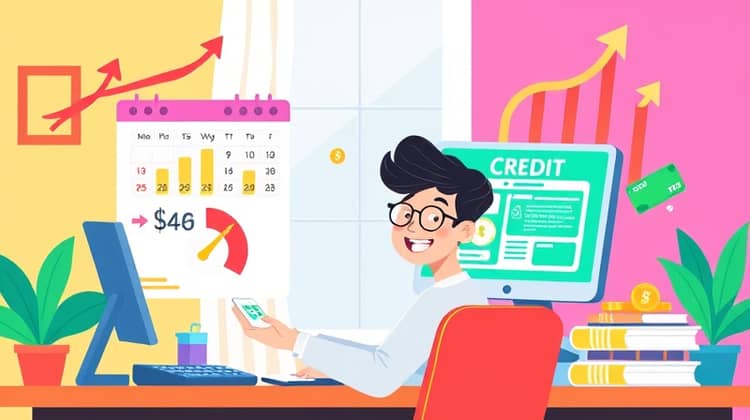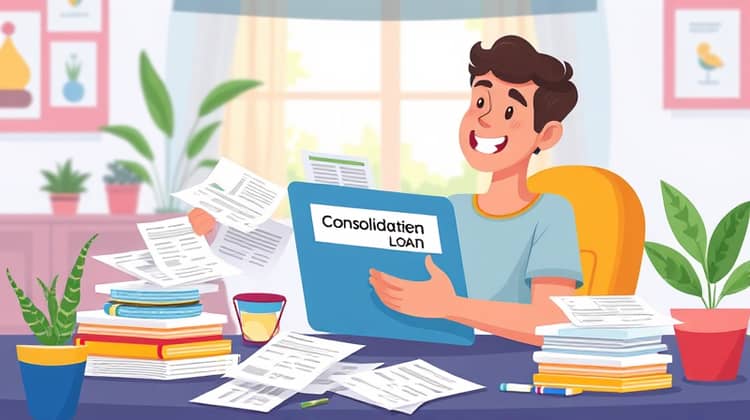Loan Interest Reduction: 8 Strategies to Pay Less Over Time

Dealing with loans can be a heavy burden, especially when it comes to paying interest. Many borrowers find themselves overwhelmed by the amount of money they have to pay back, which can often feel like an endless cycle. However, there are several strategies that can help reduce the total amount of interest you pay over time. In this article, we will explore eight effective methods to lower your loan interest and make your debt more manageable.
By implementing these strategies, not only can you save money, but you can also potentially pay off your loans faster. From refinancing to improving your credit score, every step you take can bring you closer to financial freedom. Let's dive into these methods and see how they can work for you.
1. Refinance Your Loan

Refinancing your loan can be a powerful way to save on interest payments. By transferring your existing balance to a new loan with a lower interest rate, you might significantly reduce the amount of interest you pay over the life of the loan. Additionally, refinancing can free up some cash flow by lowering your monthly payments, making it easier to manage your finances.
It's important to do your research and shop around for the best rates available to you before taking the plunge into refinancing. Various lenders may offer different terms, so being informed can lead you to the right choice for your financial situation.
- Check your current interest rate and compare it with market rates.
- Research different lenders and loan products to find better rates.
- Consider any associated fees with refinancing that might affect overall savings.
Ultimately, refinancing can be a win-win situation if done correctly, allowing you to save money and reduce the stress of repayments.
2. Negotiate a Lower Rate

Many borrowers are unaware that they can negotiate their loan terms, including interest rates. If you've been a consistent payer without missing deadlines, you may have leverage to request a lower rate from your lender. Many lenders value loyal customers and are willing to work with you to keep your business.
Effective negotiation involves being prepared to explain your reasoning to the lender, whether it be lower rates in the market or your improved financial situation.
- Gather documentation that reflects your creditworthiness.
- Research competitor rates to present as leverage during negotiations.
- Be polite but assertive when discussing your terms with the lender.
Negotiating can be a straightforward process that yields significant savings if approached correctly.
3. Improve Your Credit Score

Your credit score plays a crucial role in determining the interest rate you're offered on loans. The higher your credit score, the lower your interest rate will likely be. Hence, focusing on improving your credit score can directly impact the amount of interest you pay.
This can involve paying off outstanding debts, making all payments on time, and correcting any errors on your credit report that may negatively affect your score.
- Pay your bills on time every month.
- Reduce your credit card balances to below 30% of your limit.
- Regularly check your credit report for inaccuracies.
Improving your credit score not only enhances your chances of securing lower interest rates, but it also opens doors for better loan products in the future.
4. Switch to a Variable Rate

Switching from a fixed interest rate to a variable interest rate can sometimes result in lower overall payments. Variable rates typically start lower than fixed rates and can decrease further depending on the market conditions.
However, it is essential to consider the potential risks involved, as interest rates can also increase, leading to higher payments down the line.
- Research how variable rates are structured in your loan agreement.
- Consider your risk tolerance when opting for variable rates.
- Monitor market trends to anticipate possible changes.
Variable rates can be a gamble worth taking if you can handle fluctuations in interest payments.
5. Make Extra Payments

One straightforward but often overlooked strategy to reduce loan interest is making extra payments. When you pay more than your scheduled payment, this reduces the principal amount owed, which can lead to less interest being accrued over time.
Even small additional payments can significantly impact your loan balance, especially if made consistently over the life of the loan.
- Consider making bi-weekly payments instead of monthly payments.
- Use bonuses or tax refunds to make lump-sum payments on your loan.
- Set a monthly budget that includes extra payment contributions.
Extra payments not only accelerate your payoff timeline but also save you considerable sums on interest throughout the duration of the loan.
6. Opt for a Shorter Loan Term

Choosing a loan with a shorter term usually means higher monthly payments, but it often results in significantly less interest paid over the life of the loan. While the upfront costs might seem daunting, the long-term savings can outweigh those costs.
Shorter terms typically come with lower interest rates as well, which can further enhance your savings.
- Assess your monthly budget to determine if a shorter term is feasible.
- Consider the trade-off between higher payments and interest savings.
- Potentially look into refinancing options if your financial situation changes.
Opting for a shorter loan term can position you for faster equity building and reduced overall debt.
7. Consolidate Your Loans

If you have multiple loans, consolidating them into one single loan can be a smart way to lower your overall interest payments. This process combines all of your debts into one monthly payment, often at a lower interest rate. It can simplify your financial life by reducing the number of payments you need to keep track of each month.
In addition to convenience, loan consolidation can help improve your credit utilization ratio, as it reduces the total number of open accounts, which may positively affect your credit score.
- Evaluate different consolidation options available in your area.
- Ensure you understand the terms of the consolidation loan before proceeding.
- Check if there are penalties for paying off existing loans early.
Although it may seem like a quick fix, careful planning is crucial to ensure that consolidation is the right move for your financial future.
8. Explore Loan Forgiveness or Assistance Programs

Depending on your profession or circumstances, there may be loan forgiveness programs available to you. These are typically offered to individuals in public service jobs or those facing financial hardship. Researching these options can potentially lead to significant debt relief.
Many organizations and government agencies provide assistance programs that can help alleviate burdening loans, especially for specific professions or demographics.
- Investigate public service loan forgiveness options based on your employment.
- Look into state or federal assistance programs available for borrowers.
- Join financial literacy workshops that may offer guidance on assistance.
Exploring available programs can provide unexpected avenues for financial relief, freeing you from the weight of student or personal loans.
Conclusion

Lowering your loan interest is not merely about obtaining a better rate; it involves taking control of your financial destiny. By utilizing the strategies outlined above, borrowers can significantly lessen their financial burden over time, making it possible to pay off loans more quickly and with less stress.
The combination of negotiating for better rates, improving personal credit, and utilizing programs designed to assist borrowers can create a much more favorable financial landscape.






